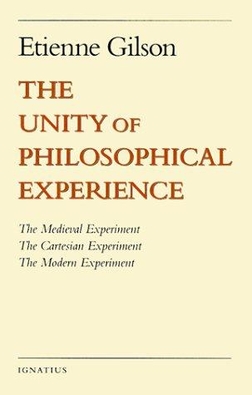It’s stranger than strange, yet, perhaps, not strange at all, for a human being to describe himself as legitimate. “I don’t do things wrong. I do things right. I’m a legitimate person,” said former president DJT on June 27 in self-defense when his integrity had been called into question following release of a self-incriminating audio tape.
What is a legitimate person? What makes a person illegitimate? What might it mean to call oneself a legitimate person? The synonyms for “legitimate” are interesting, but they are less helpful than some of the antonyms: counterfeit, deceptive, dishonest, false, illegal, invalid, unfitting, unreal, unreliable, unsuitable, untrustworthy, unlawful.
Who will rescue me from myself?
There are neither legitimate nor illegitimate persons, according to my faith tradition. Even the best of us lives in the throes of tragic estrangement. No one is exempt. The Apostle Paul — Saul of Tarsus who’d been knocked off his horse and blinded on his way to Damascus to commit domestic terrorism — expressed in his Epistle to the Romans the horrifying truth he had come to see in himself.
Though the will to do what is good is in me, the power to do it is not: the good thing I want to do, I never do; the evil thing which I do not want — that is what I do…. In my inmost self I dearly love God’s law, but I see that acting on my body there is a different law which battles against the law in my mind. So I am brought to be a prisoner of that law of sin which lives inside my body.What a wretched man I am! Who will rescue me from this body of death?
Epistle to the Romans 7:19-24 New Jerusalem Bible
Breaking the paradigm of reward and punishment
While studying Paul’s Epistle to the Romans, Martin Luther saw that the genitive in Justitia Dei (“the justice of God”) was not passive but active, his heart and mind set aside the mistaken view of God as the Judge waiting to reward or punish us according to our own righteousness and embraced the Judge who is gracious toward the defendant who throws himself on the mercy of the court, and, as in the parable of the prodigal son, is met by the grieving parent who has waited patiently for the beloved child’s return and reunion.
“The trouble with our times is not the multiplication of sinners, it is the disappearance of sin.”
“Philosophy always buries its undertakers.”
Étienne Gilson (1884 – 1978).

“I’m a legitimate person” is not a declaration of innocence. It’s a cry for rescue from the horror within one’s own self — the terrifying sense of illegitimacy — the threat that leaves one weeping in a solitary confinement of his own making.

“Life moves against itself through aggression, hate, and despair.”
– Erich Fromm (1900 –1980)
Law and Grace
In my less frequent pastoral moments I hear in the former president’s declaration of legitimacy the stammering cry of a wounded child who put his hand in the cookie jar but was never called to account. When the protest — “I didn’t put my hand in the cookie jar!”— is declared, and the lie is believed, or the truth swept aside with a shrug, the child is split between the instinct of self-preservation and the instinct of self-destruction. There remains a life-long denial, oozing from the cracks between truth and falsehood, a protest of legitimacy —“I don’t do things wrong. I do things right. I’m a legitimate person.” The adult child has yet to learn that none of us is legitimate or illegitimate and that there is a floor of mercy and acceptance waiting to save us from ourselves.
A return to Paul Tillich

In this moment I return to the wisdom of Paul Tillich that broke through the darkness of a despondent college student who had all but concluded that the faith tradition in which I had been raised was a hoax. I
I pray now for a similar wave of light for other sinners like me.
Grace strikes us when we are in great pain and restlessness. It strikes us when we walk through the dark valley of a meaningless and empty life. It strikes us when we feel that our separation is deeper than usual, because we have violated another life, a life which we loved, or from which we were estranged. It strikes us when our disgust for our own being, our indifference, our weakness, our hostility, and our lack of direction and composure have become intolerable to us. It strikes us when, year after year, the longed-for perfection of life does not appear, when the old compulsions reign within us as they have for decades, when despair destroys all joy and courage.
Sometimes at that moment a wave of light breaks into our darkness, and it is as though a voice were saying: “You are accepted, accepted by that which is greater than you, and the name of which you do not know.”
— Paul Tillich, “You Are Accepted,” The Shaking of the Foundations” (New York, Charles Scribner’s Sons, 1948).
No one can claim to be legitimate. None of us can claim we don’t do things that are wrong. No one does only right. The division of life into right and wrong is an early stage of childhood development in which the judge either rewards good behavior or punishes when you’ve put your hand in the cookie jar.
Blessed are they who live long enough to get knocked off their horses, and trust that there is more mercy in God than there is sin in us.
Gordon C. Stewart, public theologian, author of Be Still! Departure from Collective Madness, Brooklyn Park, MN, July 15, 2023




















